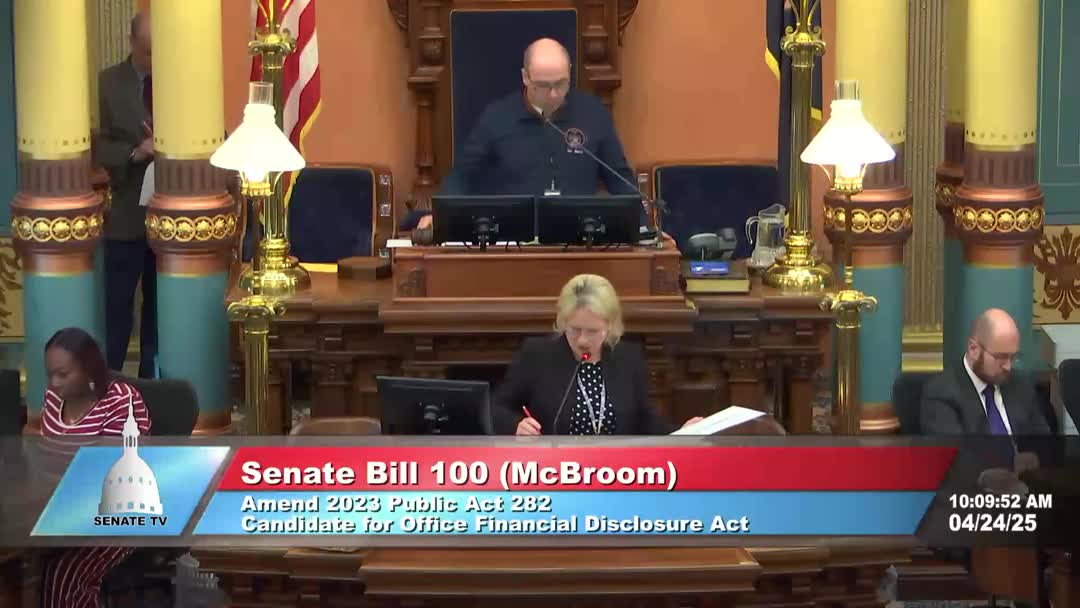Senate passes bill creating prescription drug affordability board; patient advocate added
Get AI-powered insights, summaries, and transcripts
Subscribe
Summary
The Michigan Senate passed Senate Bill 3 to create a Prescription Drug Affordability Board after adopting an amendment requiring a patient-advocate appointee. The final vote was 20-15 with one abstention and one excused.
The Michigan Senate on April 28, 2025, passed Senate Bill 3, establishing a Prescription Drug Affordability Board to review certain prescription drug products; the bill passed 20-15 with one abstention and one excused. Lawmakers adopted one amendment that requires at least one of the governor’s appointees to be from a patient advocacy organization.
Supporters said the board is intended to rein in what they described as runaway drug prices and provide a transparent, public review process. "This board is a simple concept and a great idea," said Senator Camilleri. "It allows for a public body of officials appointed by the governor, including folks who have no connection to the pharmaceutical industry whatsoever, who would then review some of these exorbitant price increases." Senator Camilleri urged colleagues to support the bill to lower costs for Michigan residents.
Debate focused on transparency, potential market impacts and the board’s scope. Senator Runstead, who offered an amendment that failed, said the proposal "is about one thing, transparency. We need to put an end to the pay to play politics." Senator Lindsey urged reporting of pharmacy benefit manager rebates to the board, arguing the information is a missing piece of the supply chain; that amendment failed. Minority Leader Nesbitt proposed a three-year sunset requiring legislative review; that amendment also failed. Senator Weber’s amendment — which passed — would require at least one governor-appointed member be from a patient advocacy organization; Weber said, "Having a patient advocate on this board would help to ensure that patients are not only represented, but that they can continue to receive proper care and access to life saving medications they desperately need."
Lawmakers also debated broader economic questions. Senator McBroom opposed the bill, arguing price controls risk reducing innovation and harming markets. Senator Irwin and other supporters described high drug prices as a public-health and affordability problem for Michigan families and employers. Senator Huizenga announced he would abstain from votes on SB 3 through 5 because of his professional background in health care consulting, citing Senate rule 1.306.
Amendment outcomes included: Amendments 1 and 2 failed on low aye counts (9 ayes each); Amendment 3 (sunset) failed (6 ayes); Amendment 4 (patient advocate) passed with 24 ayes. The final passage of SB 3 as amended was recorded as 20 ayes, 15 noes, 1 abstention, 1 excused.
The bill’s supporters said the board will target specific price outliers rather than set broad statewide price controls; opponents countered that a board could amount to centralized price control with unintended consequences. The chamber did not record a formal roll-call list of every senator’s vote in the transcript excerpt; the clerk announced totals and the recorded abstention. The bill now moves to the next step in the legislative process.
